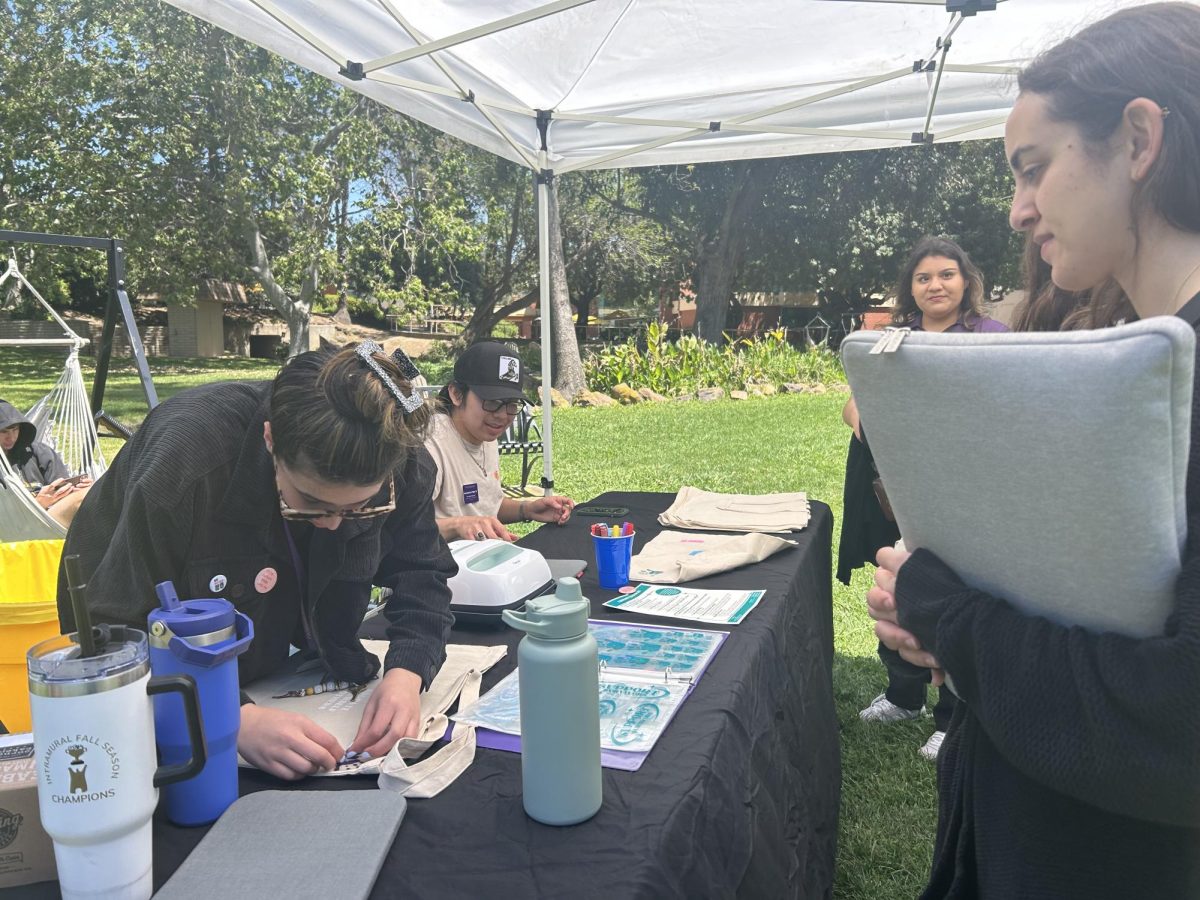While most of the California Lutheran University community went home for summer break, one professor and two students packed their bags for two months in the Amazon.
Anita Stone, an assistant professor of biology at Cal Lutheran who specializes in Neotropical primates, took two students with her to study a population of squirrel monkeys in Eastern Amazonia this past summer.
“The research I have been working on for a couple decades is with squirrel monkeys and I’ve been working with the same population at the same field site for almost 20 years,” Stone said.
Although Stone has been to the Amazon to do research on this population of squirrel monkeys many times in the last 17 years, she said this trip was the first time she has brought undergraduate students from the U.S. with her. Stone believes that students are integral to her research not only to give them research experience in the field, but to help her with her personal research and studies as well.
“There were things that [the students] were seeing for the first time that I had never noticed. I paid attention to things because they pointed things out,” Stone said.
Jacob Jasper, a senior biology major at Cal Lutheran, is one of the students who traveled to the Amazon with Stone. Jasper’s research, funded by the Jung Summer Research Fellowship for Biological Science, focused on a primate behavior called urine washing. This behavior, Jasper said, is when primates such as squirrel monkeys urinate onto their hands and proceed to wipe it on their feet. This practice has no proven reasoning behind it and so Jasper said he set out to find it.
“It was thought for a long time that the function was pheromonal communication, but so far we have no reason to believe that so we can pretty much rule out that hypothesis,” Jasper said.
He discovered, instead, that this behavior may be a form of anxiety relief for young squirrel monkeys.
“For humans, if you’re speaking in front of a crowd you might wring your hands or scratch your head. It seems that for young monkeys, that’s what urine washing seems to do,” Jasper said.
This is far from the only interesting thing about squirrel monkeys. Stone says they are unique for many reasons. Squirrel monkeys are different from other primates in that they are smaller and travel in large groups, sometimes up to 50 monkeys in one group.
The other reason these monkeys are different is that the females are more dominant than the males. This is the basis of what Stephanie Straw, a senior biology major who also accompanied Stone to the Amazon, researched during her time in Brazil. In particular, Straw researched the gender breakdown of juvenile aggression towards adult males in the population.
“If the female babies are showing more aggression towards the adult males it may be because they are attempting to show their dominance over males from an early age. If male and female babies do this equally it may be that babies in general are showing dominance over adult males,” Straw said in an email interview.
Each of the research participants say knowledge and being informed are important factors in their studies. Not much is known about squirrel monkeys, Stone said, so it is increasingly important to learn.
In this case, the conservation status of the species is unknown, possibly due to the fact that squirrel monkeys had previously been grouped in with other species. This makes it even more important to continue gathering information about them, Stone said.
“Sort of an overarching goal of ecological research is to draw attention to the fact that it’s important to know a lot about these creatures and to respect their habitat as well, as people expand into Amazonia,” Jasper said.
Natalie Elliott
Reporter








